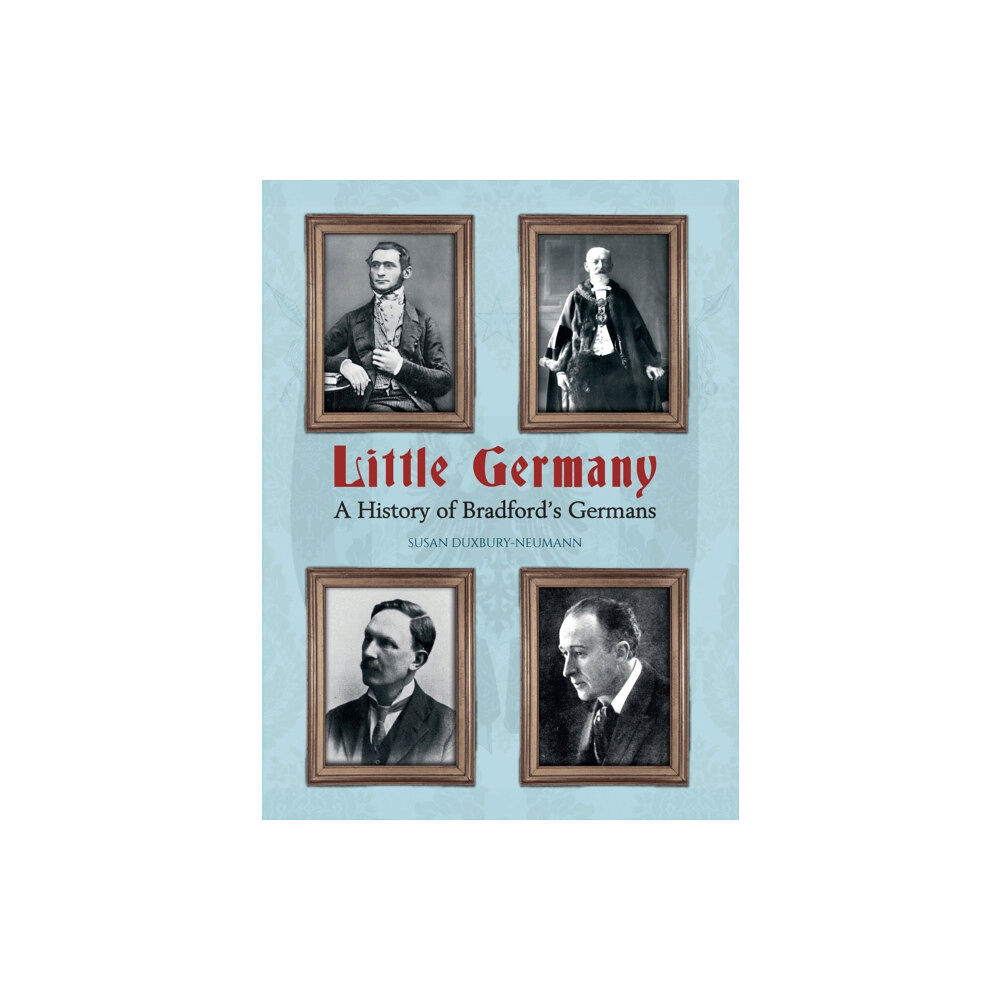- Hem
- Böcker
- Kurslitteratur
- Teknik, Industri & IT
- Little Germany (häftad, eng)

Little Germany (häftad, eng)
Little Germany takes us back to the nineteenth century, when Bradford, West Yorkshire, was the wool capital of the world. Over the centuries...
215 kr
249 kr
Bara 2 kvar
Skickas inom 4 - 5 vardagar
Fri frakt över 399:-
Snabb leverans
Alltid låga priser
Produktbeskrivning
Little Germany takes us back to the nineteenth century, when Bradford, West Yorkshire, was the wool capital of the world. Over the centuries, Germany and Great Britain have been close trading partners. When Bradford became renowned for its rapidly expanding textile trade, prosperous German wool merchants entered the country and many of them settled in Bradford.
These men, comparatively few in number but with great determination, influenced Bradford’s markets with their knowledge of commerce and philanthropic culture. They were merchants who left their mark, men who built the palatial warehouses in Little Germany.At the beginning of the Industrial Revolution and throughout the nineteenth century, cottage industries had given way to industrialisation and factories replaced traditional production.
Bradford grew from a country market town into an industrial city, with smoke-blackened buildings and a polluted landscape. It was a city of great wealth against abject poverty and slums. Workers came to Bradford in their thousands, attracted by the prospect of work. German pork butchers from Hohenlohe in south Germany settled in the industrial cities of Great Britain.
Their cheap and tasty ‘take-away’ meals were popular with factory workers, who had no time to cook due to long working hours.
These men, comparatively few in number but with great determination, influenced Bradford’s markets with their knowledge of commerce and philanthropic culture. They were merchants who left their mark, men who built the palatial warehouses in Little Germany.At the beginning of the Industrial Revolution and throughout the nineteenth century, cottage industries had given way to industrialisation and factories replaced traditional production.
Bradford grew from a country market town into an industrial city, with smoke-blackened buildings and a polluted landscape. It was a city of great wealth against abject poverty and slums. Workers came to Bradford in their thousands, attracted by the prospect of work. German pork butchers from Hohenlohe in south Germany settled in the industrial cities of Great Britain.
Their cheap and tasty ‘take-away’ meals were popular with factory workers, who had no time to cook due to long working hours.
| Format | Häftad |
| Omfång | 128 sidor |
| Språk | Engelska |
| Förlag | Amberley Publishing |
| Utgivningsdatum | 2015-09-15 |
| ISBN | 9781445649627 |
Specifikation
Böcker
- Format Häftad
- Antal sidor 128
- Språk Engelska
- Utgivningsdatum 2015-09-15
- ISBN 9781445649627
- Förlag Amberley Publishing
Leverans
Vi erbjuder flera smidiga leveransalternativ beroende på ditt postnummer, såsom Budbee Box, Early Bird, Instabox och DB Schenker. Vid köp över 399 kr är leveransen kostnadsfri, annars tillkommer en fraktavgift från 39 kr. Välj det alternativ som passar dig bäst för en bekväm leverans.
Betalning
Du kan betala tryggt och enkelt via Avarda med flera alternativ: Swish för snabb betalning, kortbetalning med VISA eller MasterCard, faktura med 30 dagars betalningstid, eller konto för flexibel delbetalning.
Specifikation
Böcker
- Format Häftad
- Antal sidor 128
- Språk Engelska
- Utgivningsdatum 2015-09-15
- ISBN 9781445649627
- Förlag Amberley Publishing
